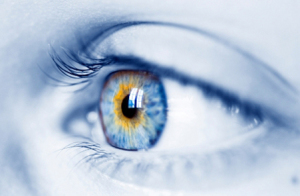Visual health can, often times, be a neglected altogether for some individuals. As a reminder, any individual should not take their eyesight for granted. Instead of taking small preventative measures to help promote healthy eyes and prevent vision loss, most individuals tend to wait until irregular problems occur. There are plenty of precautionary steps to take to maintain your visual health. Here are three important quick tips from Dr. Greenbaum, to help you be proactive about your eye health.
1. Healthy eyes require a healthy diet
 Visual health begins in the kitchen, believe it or not. The food you ingest has an effect on your vision. A well-balanced diet helps avoid any obesity-related diseases such as type 2 diabetes; diabetes is the leading cause of blindness in adults. Studies show in order to help minimize age-related vision problems such as macular degeneration and cataracts, individuals should intake nutrients such as omega-3 fatty acids, lutein, zinc and vitamins C and E. To maintain good eye health, it is also suggested to regularly eat foods such as:
Visual health begins in the kitchen, believe it or not. The food you ingest has an effect on your vision. A well-balanced diet helps avoid any obesity-related diseases such as type 2 diabetes; diabetes is the leading cause of blindness in adults. Studies show in order to help minimize age-related vision problems such as macular degeneration and cataracts, individuals should intake nutrients such as omega-3 fatty acids, lutein, zinc and vitamins C and E. To maintain good eye health, it is also suggested to regularly eat foods such as:
- Green, leafy vegetables (spinach, kale and collards)
- Oily fish (salmon and tuna)
- Non-meat protein sources (eggs, nuts and beans)
- Citrus fruits and juices (oranges)
2. Schedule regular eye exams
It is absolutely critical to have regular eye exams, especially for individuals over the age of 40. Yearly eye exams help detect age-related conditions like macular degeneration, cataracts, and glaucoma. Eye exams help prevent conditions that impair your vision and it also helps detect other health problems like diabetes and high blood pressure. So don’t cancel your annual eye exam! Click here to make an appointment today.
3. Take a computer break
Most adults are so focused on the computer screen these days where it can cause various problems including eye strain, dry eyes, headaches, blurry vision and trouble focusing at a distance. Give your eyes a break from the computer screen to lessen the strain on your eyes. To rest your eyes, practice the 20-20-20 rule: for a minimum of 20 seconds every 20 minutes, look at least 20 feet away from your screen.
To learn more about what you can do to improve your eye health, contact us to schedule an appointment with Dr. Greenbaum.
